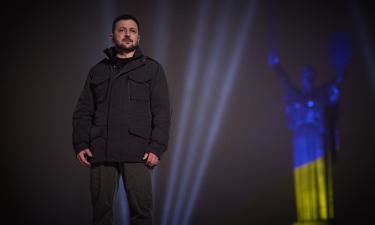Benjamin Franklin's London home unveiled on the 300th anniversary of his birth
After decades of neglect and years of restoration, Benjamin Franklin's London residence was unveiled to the public Tuesday as a museum dedicated to an American revolutionary who spent years trying to keep Britain and her colonies united. The U.S. founding father lived for almost two decades in London before the American revolution, working to bridge the widening gap between colonies and the Crown.
"He wasn't very successful, but he sowed the seeds of the Anglo-American special relationship," said Marcia Balisciano, director of the Benjamin Franklin House museum.
U.S. Ambassador Robert H. Tuttle and Foreign Secretary Jack Straw will cut a red, white and blue ribbon Tuesday the 300th anniversary of Franklin's birth to formally open the 18th-century brick home, where Franklin worked, conducted scientific experiments and invented an ethereal-sounding musical instrument called the glass armonica.
Following its 3 million pound (US$5.3 million, Ђ4.4 million) restoration, the house will be open by appointment from Wednesday. Regular opening hours are due to begin in February. Franklin lodged in the modest four-story brick building just off Trafalgar Square from 1757-1762 and from 1764-1775, acting as a diplomat on behalf of American colonists.
He shared the house at 36 Craven St., with landlady Margaret Stevenson, her daughter Polly and, for a time, Polly's husband William Hewson, a surgeon who ran an onsite anatomy school. Hundreds of human bones were discovered in the basement during excavations in the 1990s.
Balisciano said the house, a center of the 18th-century intellectual ferment known as the Enlightenment, was "stuffed to the brim with people." Temporary residents included Franklin's niece, his illegitimate grandson and economist Adam Smith. Franklin's 20th-century biographer, Carl Van Doren, noted that he was less a lodger than the head of a household, "living in serene comfort and affection."
The house, which curators call the "first de facto U.S. Embassy", was the site of many of Franklin's scientific experiments including the invention of bifocal glasses and the creation of the glass armonica, for which Beethoven, Bach and Mozart composed pieces. "Each of the rooms tells a different part of Franklin's life in London," said Balisciano.
She said curators were driven by "what would have interested Franklin, who said 'I was born 200 years too soon.' " Used as a hotel until World War II and then as offices for a variety of nonprofit groups, the house was almost derelict when it was given by the British government to a charitable trust in the 1970s. The trust has spent eight years renovating the building, which now includes a multimedia "historical experience," an archive of Franklin's papers and a student science center, reports the AP. N.U.
Subscribe to Pravda.Ru Telegram channel, Facebook, RSS!




